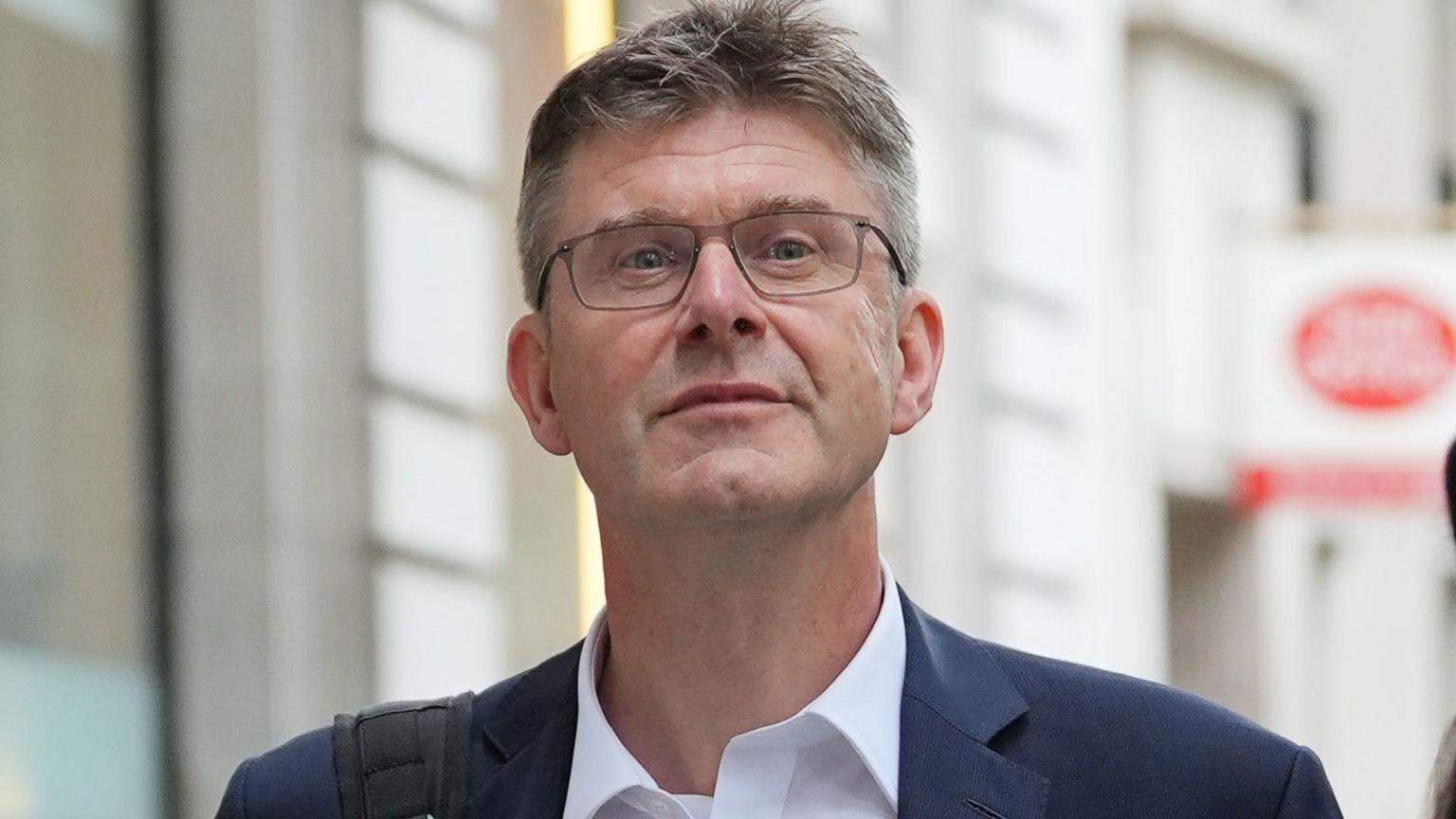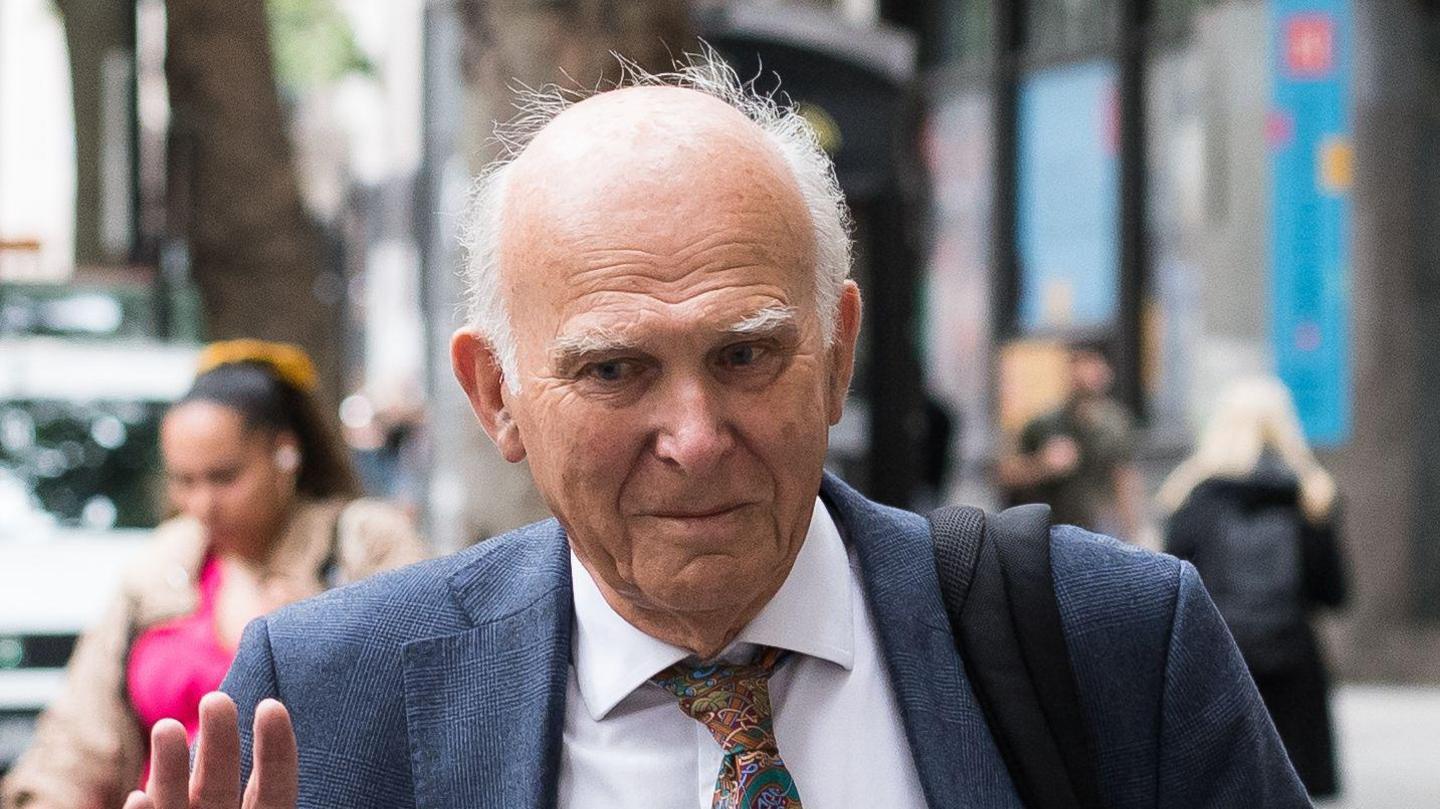Ex-minister brands Post Office cases 'corrupt'

- Published
The Post Office brought prosecutions against sub-postmasters in a way that was "corrupt", "unreliable" and "totally unconscionable", a former business secretary has said.
Greg Clark - who held the position from 2016 to 2019 - told the Post Office IT scandal inquiry the management culture of the Post Office was "insensitive and dismissive to the point of abject rudeness".
However, like former business secretary Sir Vince Cable, who appeared before the inquiry on Thursday morning, Mr Clark said the Post Office had not made him aware of any issues.
Sir Vince, who held the position between 2010 and 2015, said he was unaware of the prosecutions, despite being in charge of the organisation while in government.
The former Lib Dem leader also said he agreed with former sub-postmaster and campaigner Sir Alan Bates' description of Post Office middle-management as "thugs in suits".
In what has been called the UK's most widespread miscarriage of justice, more than 900 sub-postmasters were prosecuted for stealing because of incorrect information from a computer system called Horizon between 1999 and 2015.
The Post Office was able to both investigate and prosecute these sub-postmasters itself because of the way it is set up, a structure heavily criticised by campaigners.
Some of the sub-postmasters went to prison for false accounting and theft, and many were financially ruined.
In 2017, 555 of them took legal action against the Post Office. In 2019, it agreed to pay them £58m in compensation, but much of the money went on legal fees.
The High Court judgement found that the Horizon IT software contained a large number of software defects and was not "remotely robust", which caused shortfalls with sub-postmasters' accounts, and that there was a "material risk" that shortfalls in Post Office branch accounts were caused by the system.
When questioned about the High Court judgement, Mr Clark said he was "angry" and accused the Post Office of playing a "legal game" for "tactical" reasons when the Post Office said it would appeal the judgement.
He said he kept "nuclear options" on the table to resolve Horizon litigation, including firing the entire board.
'We had to skip meals', says former sub-postmistress
- Published22 July 2024
Postmasters had fingers in the till, minister told
- Published19 July 2024
During the morning session of the inquiry, Sir Vince admitted, under questioning from Jason Beer KC, a share of responsibility for the scandal.
Despite being in charge of the Post Office during his tenure, Sir Vince said he did not know this until "right at the end" of his time in office, which was around 2015.
"This was an area of the department where clearly there was a policy failure," he said.
Sir Vince said he was aware of more general issues with the Post Office at the time.
In his first meeting with then-Post Office chief executive Paula Vennells, he said he had "a spirited discussion when I raised the treatment of postmasters".
He added in his witness statement that the Post Office was "authoritarian" and "dealt with us in an arrogant way".

Sir Vince described the Post Office at the time as a "monopoly", which he wanted to change.
He said he had wanted to "address the imbalance" between the Post Office and sub-postmasters by creating a "mutual structure", which would have in effect given sub-postmasters control of the organisation.
He said he raised some of these issues with Ms Vennells but the mutualisation "unfortunately never came to fruition".
Instead, the Post Office was split from the Royal Mail group under Sir Vince’s watch and remains a government-owned company.
Mr Beer questioned why Sir Vince, despite raising these general concerns, was not aware of serious problems with Horizon until 2015.
An unsigned draft letter from Sir Vince's office to then-Labour leader Ed Miliband in 2012 said he "remains fully confident about the robustness and integrity" of the Horizon software.
It was written in response to Mr Miliband's concerns about a sub-postmaster. Sir Vince said he never saw the letter, despite it being written on his behalf.
"The problem was there were about several hundred letters, and emails, [that] would come in every day," he said, adding that he was on international visits at the time.